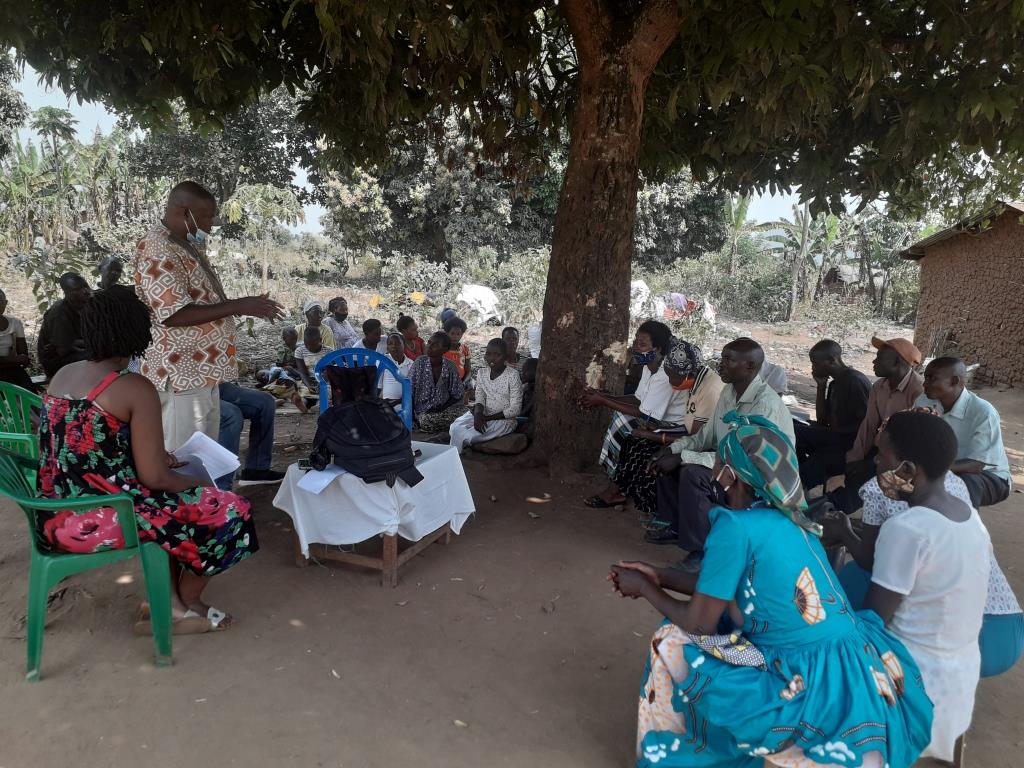Tuesday, March 30th, 2021 | By

Jeanette Ushanda 38, a refugee living in Maratatu village, Kyangwali resettlement camp in Greater Hoima district says collecting firewood has become a serious source of conflict between the host communities and the refugees.
Ushanda, the already traumatized refugee who ran from the Democratic Republic of Congo, DRC three years back, narrates that she has to negotiate access to gather firewood in land surrounding the camp or else she risks assault and violence.
“Collecting firewood comes with tension, violence and insecurity. One time I was beaten by a Ugandan national because I had accessed his land to collect firewood without his permission. He even took away my firewood,” Ushanda narrated painfully.
Ushanda is among the people who experience human rights violations and still find themselves surrounded by conflicts within the displaced camps in Kijayo and Rwamutonga camps for Internally Displaced Persons (IDPs) and Kyangwali resettlement camp.
Edward Tumusiime, the Kijayo Village chairperson says that scarce resources and land shortages have resulted into conflicts among the internally displaced people in Kijayo both at household and community level.
“The displaced people lack resources like land, money and food. This brings conflicts in families as people struggle with poverty and breaks into gender based violence. At community level, these affected people conflict with the host communities in search for firewood, food and money because they are looked at as competitors. So conflicts are common” said Tumusiime.
Jolly Kebirungi, the Kyangwali resettlement commandant under the Office of the Prime Minister explains that the upsurge number of refugees has led to scarcity of resources as this has resulted into conflicts with in the camp.
“The number of refugees shot from 35,000 in 2013 to over 120,000 in 2017 due to influx of Congolese refugees. As the number increases, the land allocated to them reduces, the water points get crowded with long queues and even the food given to them by World Food Program in terms of money has been reducing. There is also much pressure on the forests so we limit them from accessing the forest reserve for firewood. So all these are causing conflicts here,” Kebirungi noted.
These issues were raised during the baseline study that was conducted by National Association of Professional Environmentalists (NAPE) to determine the nature and magnitude of conflicts in Kijayo and Rwamutonga camps for Internally Displaced Persons (IDPs) and Kyangwali resettlement camp in February.
Joan Akiiza, the NAPE Lawyer says the survey is aimed at guiding NAPE on intervening in peace keeping efforts in the camps by formation of community-based institutions known as Local Peace Committees (LPCs).
“Local Peace Committees will help in negotiations and mediations to reduce conflicts and promote peaceful reconciliation, and also train community members on peace and conflict management in order to solve their own conflicts,” Akiiza said.
She also noted that NAPE plans to empower communities especially women in the camps with knowledge and skills of improving their livelihoods to reduce poverty and maintain peace.
The two year project dubbed, “Enhancing the role and capacity of grassroots women to promote peaceful co-existence and prevent conflicts” will be operating in Kijayo , Kyangwali, Rwamutonga camps in Kikuube districts. The project is funded by Women Peace Humanitarian Fund with technical support from UN WOMEN.
Copyright ©2025 Community Green Radio . All Rights Reserved. Designed : Lwegatech